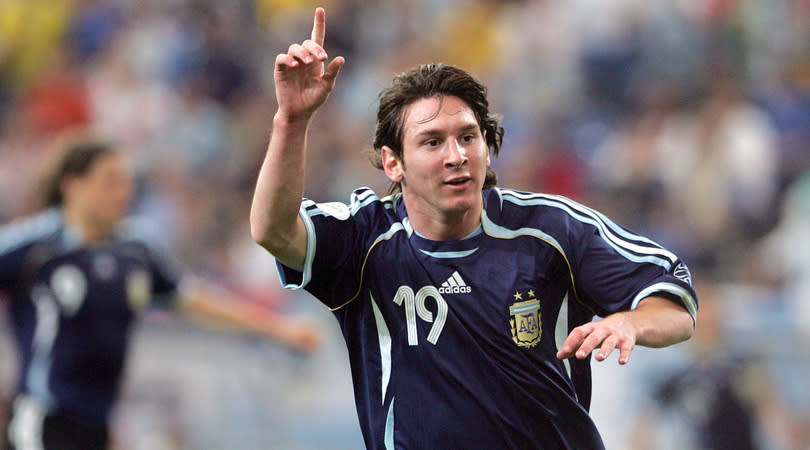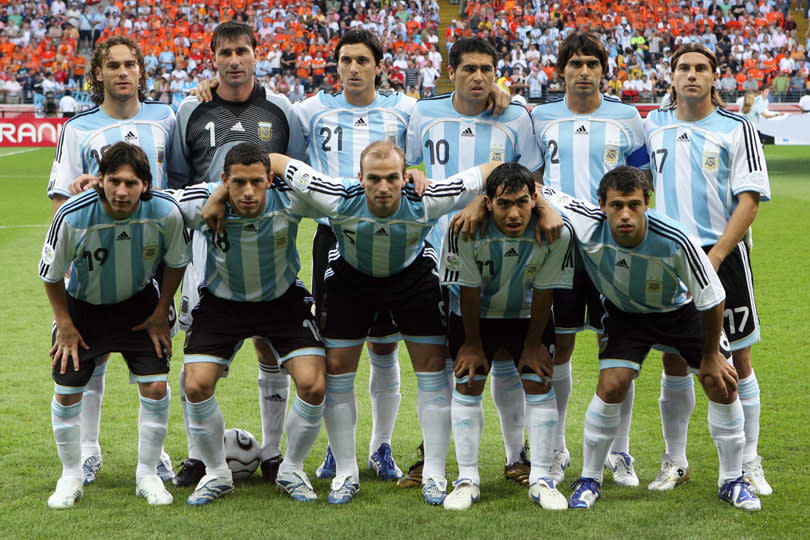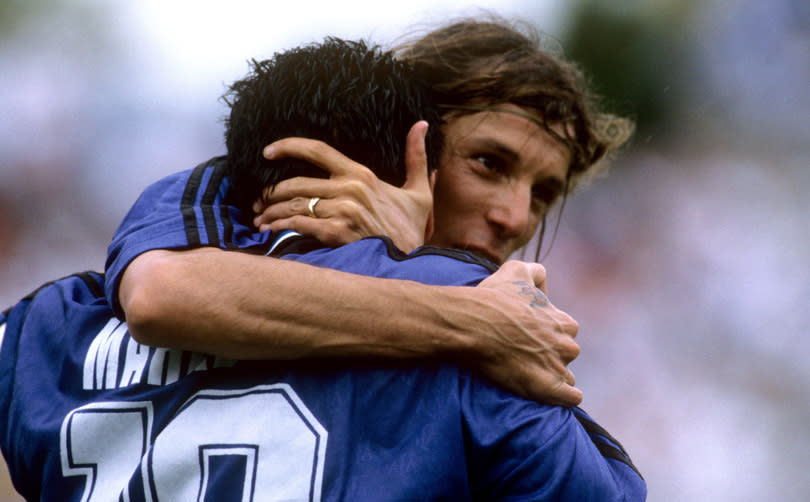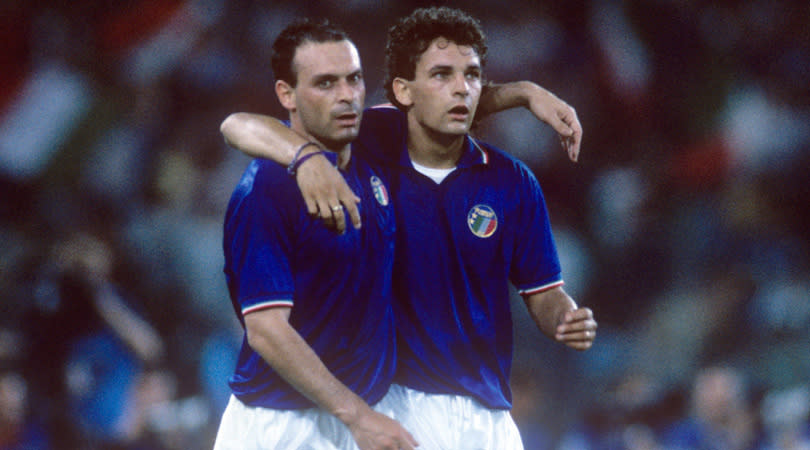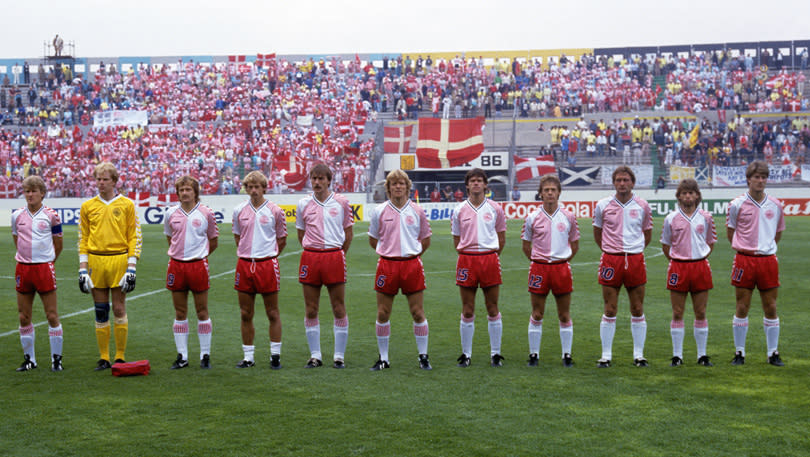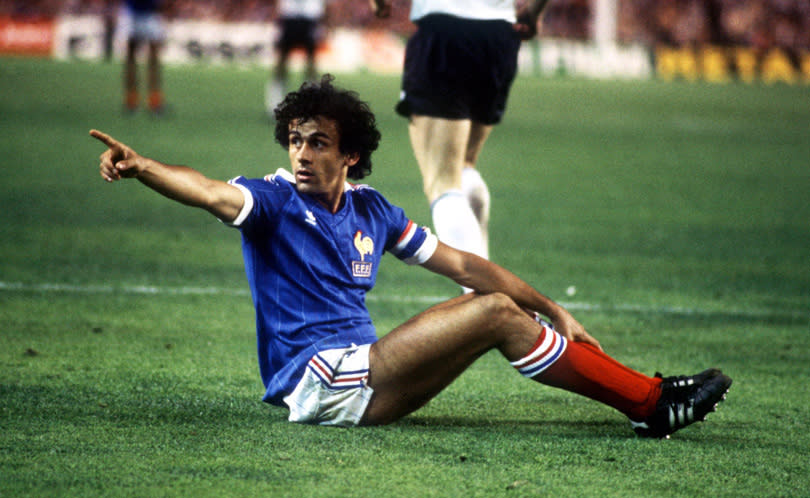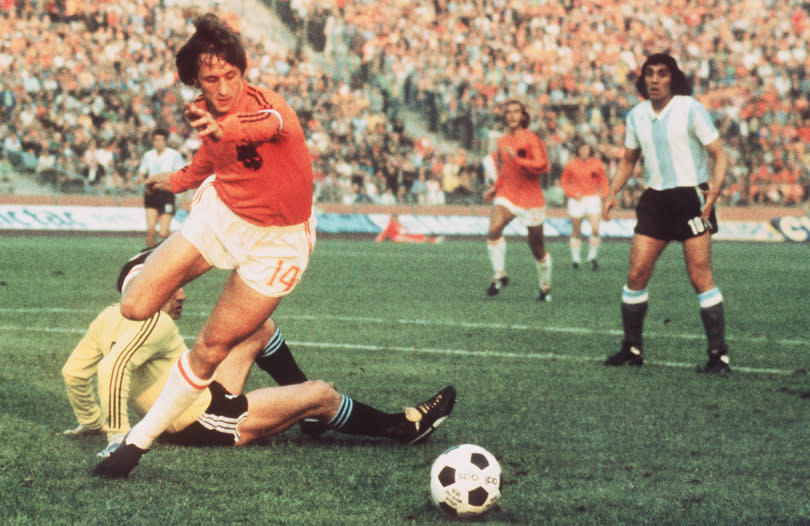Rated! The greatest sides NOT to win the World Cup
Argentina (1930)
The inaugural World Cup was a very different beast: no qualification, 13 teams, three venues, one city (Uruguayan capital Montevideo). Having popped across the River Plate, Argentina squeezed past nine-man France but then larruped Mexico 6-3, Chile 3-1 and, in the semi, the US 6-1. In the final, they came from behind to lead the hosts 2-1 at half-time.
At the break, two sinister chaps warned Luis Monti – arguably the planet’s best player – that if Argentina won, his mother and sister would be killed. Maybe it was a thigh injury that slowed him in the second half, but Uruguay scored three unanswered goals. Monti joined Juventus, naturalised as an Italian citizen and won the 1934 World Cup on his new home soil instead.
Austria (1934)
No hipster worth his beard oil should omit to mention Hugo Meisl’s Wunderteam. Tactically adept, disciplined and unusually professional for the era, they gained their creative fulcrum when Meisl recalled Matthias Sindelar – variously nicknamed 'The Paper Man' for his lack of physicality and 'The Mozart of Football' for his virtuosity. They went to Italy as one of the favourites, especially after marking the February opening of Turin’s Stadio Mussolini by humping the hosts 4-2 in a friendly.
At the World Cup, they beat local rivals Hungary 2-1 in a bruising quarter-final before facing Italy in the semis. A pre-matched downpour spoiled their passing game, Luis Monti kicked Sindelar all over the show, sidekick Johann Horvath was already injured and Mussolini’s pet team went on to win the tournament.
Brazil (1938)
There’s a fine line between confidence and hubris, and in 1938 the first great Brazil team fell the wrong side of it. In their first game, they put six past Poland – but conceded five and needed extra time, which they also used to beat Czechoslovakia 2-1.
Perhaps it was tired legs that made the coach rest a number of first-teamers, including four-goal star Leonidas, for the semi-final against Italy in Marseille. Maybe it was just good logistical prep to book every seat on a flight to Paris the next day for the final. "What if you lose?" said Italy's coach to Brazil's. "We won't," came the reply. They did – and had to make their way to Bordeaux for the bronze-medal match, in which Leonidas bagged two to win a hypothetical Golden Boot as non-existent as Brazil’s Jules Rimet trophy.
Brazil (1950)
You might have noticed that the Brazilians love football. So when they hosted the first post-war World Cup – a year after an eager FIFA had wanted it held – they expected to win. They paid coach Flavio Costa a stunning £1,000 per month and locked the squad away for four months. They started with a 4-0 victory over Mexico, then Sweden 7-1 and Spain 6-1 to set up a coronation finale against Uruguay.
Across five games they’d scored 21 goals, eight of them going to the graceful Ademir and the rest shared between another six players exhibiting what Brian Glanville called “the football of the future”. Two hundred thousand exultant fans packed the Maracana – and watched the Uruguayans come from behind to the win the match and the tournament. They called it the Maracanazo; Brazilian author Nelson Rodrigues called it “our Hiroshima”.
Hungary (1954)
Whether or not you buy the idea that it comes at a loss of romanticism, the Germanic reputation for pragmatism is well-founded. For the final against the Magical Magyars, unbeaten in 30-odd games and undoubtedly the planet’s finest team, much of the 'Miracle of Bern' victory came down to Adi Dassler providing the team with long studs on a rainy match day.
Hungary weren’t at their best: Ferenc Puskas wasn’t fully fit, Nandor Hidegkuti was man-marked to silence by Horst Eckel, and other legends like Sandor Kocsis, Zoltan Czibor and Jozsef Bozsik couldn’t produce their usual liquid tactics on a swamp, tiring as the Germans came from two down to win. But across the finals, Hungary scored 27 goals in five matches, entering legend as one of the finest teams never to win the World Cup. Do the Germans care? Not really.
Portugal (1966)
History is written by the victors and England have rarely ceased honking on about 1966, but they arguably weren’t the best team at that tournament. Portugal scored 17 goals to the hosts’ 11 (more than a third of which came in that final you’ll have heard of) and were involved in most of the classic games.
They were built around Eusebio, 'Europe’s answer to Pele' (actually born in Mozambique) who top-scored with nine, and another half-dozen of his Benfica side who’d reached four European Cup finals in six years – including captain Mario Coluna, creative midfielder Jose Augusto, tiny winger Antonio Simoes and 6ft 3in forward Jose Torres. Hungary (3-1), Bulgaria (3-0) and holders Brazil (3-0) were dispatched in the groups and North Korea hit for five after having the cheek to go 3-0 up in the quarters, before the hosts prevailed in the semi-finals. Portugal wouldn’t qualify again for another 20 years.
West Germany (1970)
Four times in the last six major international tournaments, Germany have lost in the semi-finals. That shortfall used to be the exception: they won nine of the 11 they reached between 1970 and 1998 (winning five of the consequent finals).
The 1966 finalists had matured, the pool deepened. Franz Beckenbauer was now all of 24, as was his terrifyingly prolific Bayern clubmate Gerd Muller. Captain Uwe Seeler, at his fourth World Cup, dropped into midfield. Sailing through their group, they came from two down in the Leon heat to eliminate holders England (goalscorers: Beckenbauer, Seeler, Muller).
Then in the semi-final, later christened the 'Game of the Century', they equalised in injury time – much needed: Beckenbauer was playing on with a dislocated shoulder – and Muller bagged two in extra time to take his tournament total to 10. But Italy found three goals in riposte to send the Germans home… where they would win the next tournament against another superb losing side.
England (1970)
There's perhaps a certain Anglocentric egotism in lauding a team that lost two of their four games, but man-for-man the squad was arguably better than the 1966 winners. A maturing spine – Gordon Banks, Bobby Moore, Bobby Charlton, Alan Ball, Martin Peters, Geoff Hurst – was augmented by improvements: Jack Charlton and Nobby Stiles were much less rounded than their replacements, Everton’s Brian Labone and Tottenham’s Alan Mullery, while Alf Ramsey could also include exciting younger talents like Colin Bell, Emlyn Hughes, Peter Osgood and Allan Clarke.
Clearly struggling in the TV-ordained noon heat, England nonetheless did enough to win two of their group games and, in a 1-0 loss, to give Brazil as good a game as anyone: no other opponent kept them below three goals, and they were a Jeff Astle sitter away from parity. Their collapse from 2-0 up against West Germany solidified several English beliefs for generations: never sit back, never sub your key man (Bobby Charlton was removed to rest him for the semi-finals), and never expect to beat Germans.
Holland (1974)
The Dutch hadn’t qualified for any finals since the Nazis threw their bikes in the canal, but Ajax had won the European Cup for three successive years and this was a special bunch of players, a futuristic ‘Clockwork Orange’ whirl of passing and movement with Johan Cruyff the on-field general for visionary coach Rinus Michels, supported by the slippery Johan Neeskens, hard-shooting Johnny Rep, Rob Rensenbrink and the rest – all switching positions at will.
They did things previously unimagined: Cruyff turned Swedish right-back Gunnar Olsson inside-out and entered football lexicon. Argentina were annihilated 4-0, champions Brazil 2-0. And in the final they were ahead within two minutes, but taunted their German hosts rather than get a second goal. The comeback left romance in tatters and ended Cruyff’s World Cup career: he didn’t go to Argentina 1978, where the Dutch would again lose to the hosts in the final.
Italy (1978)
After Italy’s triumphs in 1934 and 1938, Mexico '70 was the only time they cleared the first hurdle until Argentina '78. They would win it again in 1982 but this was arguably the better team, with stylish playmaker Giancarlo Antognoni plus nine regulars lifted from the Juventus team who’d won Serie A five times in seven seasons.
Recovering from the shock of going behind to France after 37 seconds, they beat all three opponents in the first group, including the hosts in front of 71,000 at final-venue El Monumental. In the second group – effectively the quarters and semis – they drew 0-0 with holders West Germany, beat Austria 1-0 and were easily beating Holland by the same scoreline... then Enzo Bearzot subbed mercurial winger Franco Causio to save his legs, Italy sat back and they lost to two 40-yarders.
Brazil (1982)
Beautiful losers are better remembered than ugly winners. Thirty-six years on – it’s now almost exactly halfway back to the Second World War – this Brazil side is still much more discussed than the Italian side which triumphed at España '82, or indeed the Brazilian one which ended a 24-year duck in 1994.
Fans of a certain age go misty-eyed at the names: Zico, Eder, Socrates, Falcao – and that’s just the attacking midfielders. But that’s the point: they were all attacking players – in the opening group they scored 10, then demolished holders and neighbours Argentina 3-1... meaning against Italy they only needed a draw. But how do you get those? Fired by Paolo Rossi and players who really did know how to defend, Italy prevailed 3-2. Many cried, and to a large extent a carefree form of football died, even in Brazil.
France (1982)
It didn’t start well. Bryan Robson’s 27th-second goal set England towards a 3-1 win, and defensive midfielder Jean-Francois Larios was sent home, allegedly due to tensions over an extramarital affair with Mrs Platini. But cuckolded Michel and his top-class creative cohorts Alain Giresse and Jean Tigana started to click, beating Kuwait, Austria and Northern Ireland to reach a classic semi-final against West Germany.
Platini levelled Pierre Littbarski’s opener before German goalkeeper Harald Schumacher ended Patrick Battiston’s late offside-springing charge with a sickening assault – Battiston, with missing teeth, was left unconscious – mystifyingly unpunished by the Dutch ref. In extra time the French went two goals clear but, perhaps missing Larois, allowed the Germans back for the inevitable Schumacher-sponsored penalty shootout win. As some consolation, France went on to win Euro '84 and star again in Mexico.
Denmark (1986)
FIFA’s technical report isn’t always a riveting read but it used precisely the right word for Denmark 1986: “spectacular”. Sport as spectacle, purveyed by what a Danish commentator called an “unconquerable team of optimists”. The world’s finest young player, Michael Laudrup, was paired up top with wily Preben Elkjaer, who’d often have a cig at half-time. Behind them, Soren Lerby, Frank Arnesen and the rest kept out English-based heroes Jan Molby and Jesper Olsen.
Dribblers all, they played with a fluidity that evoked comparisons to Dutch total football. After beating Scotland 1-0 they blitzed Uruguay 6-1 and mighty West Germany 2-0. In the knockouts they were beating Spain 1-0 when Olsen’s awful backpass was intercepted, Emilio Butragueno scored and the Danes collapsed, conceding four more. A Danish dream was over - although six years later they’d surprise themselves by winning a Euros they hadn’t qualified for.
Italy (1990)
The last World Cup before the prohibition of the backpass produced the lowest goals-per-game return, and Italy did their bit: in their six games they scored eight and conceded just one. In fact they’d only conceded one in a year: this was a team with Walter Zenga protected by Franco Baresi, Giuseppe Bergomi and Paolo Maldini. Further forward, the artistry of Giuseppe Giannini, Roberto Donadoni and Roberto Baggio was augmented by surprise top-scorer Toto Schillaci.
And then, in the semi-finals, they played Argentina in Diego Maradona’s adopted back yard of Napoli. One up, they sat back and couldn’t respond to Claudio Caniggia’s equaliser over a flapping Zenga; by contrast, Argentine goalkeeper Sergio Goycochea made two shootout saves to break Italian hearts.
Argentina (1994)
Few teams can have gone through such reinvention between World Cups as this Argentina side. Under Alfio Basile, the nation had swung back from Carlos Bilardo’s 'anti-futbol' to something more resembling the swagger of Cesar Luis Menotti’s 1978 winners. Diego Maradona was thin as a whippet, supported by Fernando Redondo and protected by Diego Simeone behind Claudio Caniggia and Gabriel Batistuta.
Playing fast-moving, intelligent football, they demolished Greece 4-0 and then came from behind against the highly-fancied Nigerians to win 2-1. But Diego’s drugs disbarral dismantled their confidence, and they lost their final group game 2-0 to Bulgaria before losing a 3-2 thriller to Romania. Bilardo, presumably, threw his hands in the air.
Yugoslavia (1994)
Bit left-field, this, but come with us. Yugoslavia didn’t qualify for USA '94; having been barred at the last minute from Euro '92, the country was busy atomising into Croatia, Slovenia, Macedonia, Bosnia-Herzegovina and (eventually) Serbia and Montenegro. This was a great pity for the 1987 World Youth (U20) champions who managed, during the course of that competition, to defeat each of the other three semi-finalists and the defending champions.
Put it like this. Emerging from the rubble, Croatia reached the Euro '96 quarter-finals and France '98 semis, each time losing narrowly to the winners. Now imagine that squad bolstered by other ex-Yugoslavs. You're talking Slaven Bilic, Sinisa Mihajlovic, Igor Stimac and Dario Simic in defence; Robert Prosinecki, Dejan Savicevic, Zvonimir Boban, Dragan Stojkovic, Vladimir Jugovic and Aljosa Asanovic in midfield; and up top, Davor Suker, Darko Pancev and Alen Boksic. You try stopping them.
Argentina (2006)
Such strong contenders that they had their pre-tournament FourFourTwo front cover, Argentina had terrifying armoury: Hernan Crespo, Javier Saviola, Carlos Tevez and little Leo Messi, with ammo supplied by Juan Roman Riquelme and Pablo Aimar. They beat Ivory Coast and then pummelled Serbia-Montenegro 6-0, their second goal coming after a 25-pass move.
In the knockouts, Mexico fell to a gobsmacking Maxi Rodriguez volley to set up a quarter-final with hosts Germany. The visitors were in front until coach Jose Pekerman lost his nerve with three subs in 10 minutes, including withdrawing Riquelme and Crespo. Inevitably, Germany equalised; even more inevitably, Germany won the shootout; perhaps reverting to the less beautiful side of their split personality, Argentina then started a huge on-pitch brawl – punches, kicks, the lot.

 Yahoo Sports
Yahoo Sports 